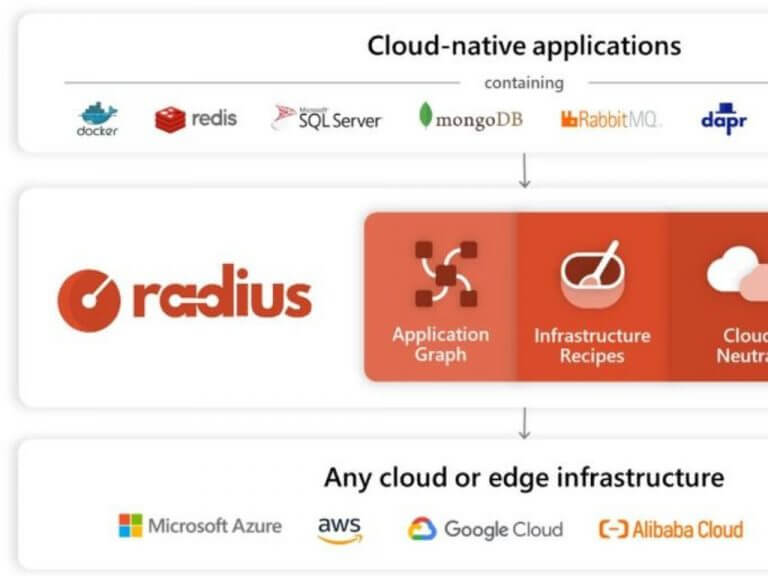Microsoft today announced the launch of Radius, an open-source, cloud-native application platform that enables developers and platform engineers to collaborate on delivering and managing cloud-native applications that follow corporate best practices for cost, operations, and security by default.
In easier words, cloud-native applications are designed to run in the cloud, and they can be very complex. Radius makes it easier to build and manage these applications by providing a set of tools and features that are specifically designed for cloud-native development.
- Radius supports deploying applications across private cloud, Microsoft Azure, and Amazon Web Services, with more cloud providers to come.
- Developers and platform engineers can easily manage cloud-native applications by integrating Radius with existing tools and technologies such as Kubernetes, Terraform, Bicep, and GitHub Actions.
- Radius is open-source and is also multi-cloud, which means that it can support applications that are deployed to multiple cloud providers.
- Radius simplifies development and operations by seamlessly integrating with Kubernetes, Terraform, Bicep, and GitHub Actions.
Here is an analogy that might help:
Constructing a house from the ground up can be a challenging and time-consuming endeavor, demanding various tools and supplies. However, utilizing a pre-fabricated house kit can simplify the construction process considerably and accelerate it, offering all the necessary components and guidelines to complete the project successfully.
Radius can be thought of as a pre-fabricated house kit for cloud-native applications. It is designed to offer developers a comprehensive set of tools and features that can simplify the process of building and managing cloud-native applications, allowing developers to focus on delivering high-quality applications without worrying about the underlying infrastructure. With Radius, developers can create cloud-native applications much faster and with less effort.


